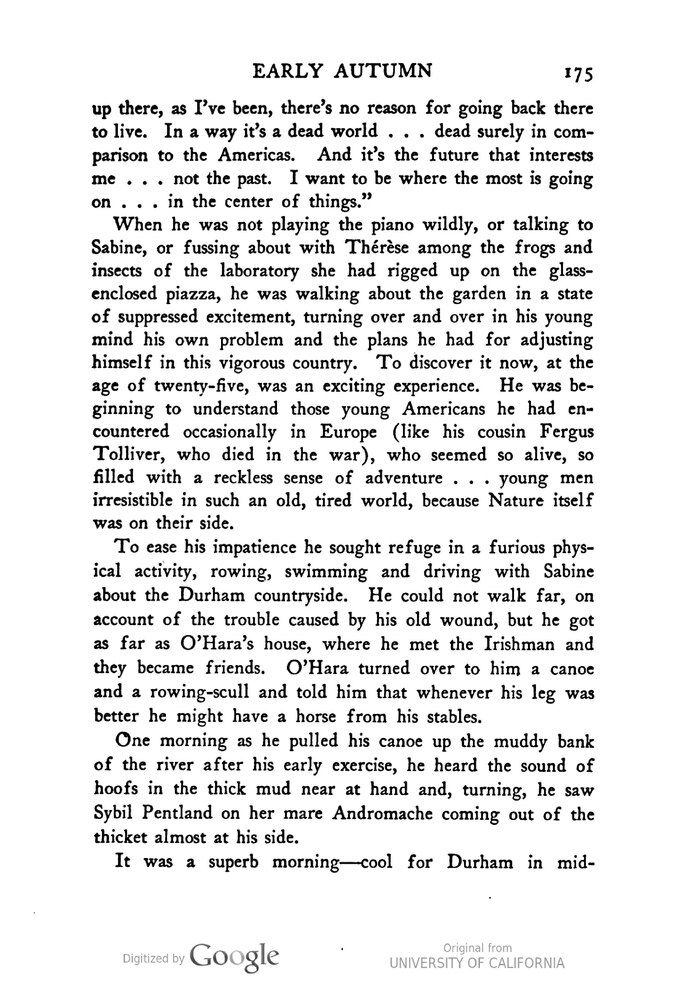up there, as I've been, there's no reason for going back there to live. In a way it's a dead world . . . dead surely in comparison to the Americas. And it's the future that interests me . . . not the past. I want to be where the most is going on . . . in the center of things."
When he was not playing the piano wildly, or talking to Sabine, or fussing about with Thérèse among the frogs and insects of the laboratory she had rigged up on the glass-enclosed piazza, he was walking about the garden in a state of suppressed excitement, turning over and over in his young mind his own problem and the plans he had for adjusting himself in this vigorous country. To discover it now, at the age of twenty-five, was an exciting experience. He was beginning to understand those young Americans he had encountered occasionally in Europe (like his cousin Fergus Tolliver, who died in the war), who seemed so alive, so filled with a reckless sense of adventure . . . young men irresistible in such an old, tired world, because Nature itself was on their side.
To ease his impatience he sought refuge in a furious physical activity, rowing, swimming and driving with Sabine about the Durham countryside. He could not walk far, on account of the trouble caused by his old wound, but he got as far as O'Hara's house, where he met the Irishman and they became friends. O'Hara turned over to him a canoe and a rowing-scull and told him that whenever his leg was better he might have a horse from his stables.
One morning as he pulled his canoe up the muddy bank of the river after his early exercise, he heard the sound of hoofs in the thick mud near at hand and, turning, he saw Sybil Pentland on her mare Andromache coming out of the thicket almost at his side.
It was a superb morning—cool for Durham in mid-
